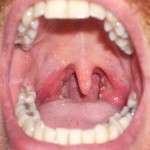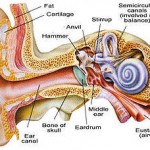Carnitine is a natural occurring substance, an amino acid, which helps the body convert fat into energy. Your body makes it in the liver and kidneys and stores it in the skeletal muscles, heart, brain, and sperm.
 Here’s how it works: After you ingest L-carnitine, it travels to your gut, and intestinal bacteria converts the L-carnitine into a substance called TMA, which then gets processed by the liver. The liver converts TMA into a compound that has been linked to plaque build-up in the arteries and heart disease. This conversion was most apparent in those who regularly ate red meat. Remarkably, vegans and vegetarians, even after consuming a large amount of carnitine, did not produce significant levels of TMA. It may be because they have different gut bacteria.
Here’s how it works: After you ingest L-carnitine, it travels to your gut, and intestinal bacteria converts the L-carnitine into a substance called TMA, which then gets processed by the liver. The liver converts TMA into a compound that has been linked to plaque build-up in the arteries and heart disease. This conversion was most apparent in those who regularly ate red meat. Remarkably, vegans and vegetarians, even after consuming a large amount of carnitine, did not produce significant levels of TMA. It may be because they have different gut bacteria.
Carnitine has been proposed as a treatment for many conditions because it acts as an antioxidant. Antioxidants fight harmful particles in the body known as free radicals, which damage cells and tamper with DNA. Antioxidants can neutralize free radicals and may reduce or help prevent some of the damage they cause.
Carnitine may help in the following conditions:
- Angina
- Heart Attack
- Heart failure
- Peripheral Vascular Disease
- Lower cholesterol
- Increase HDL
- Reduce Triglycerides
- Diabetic Neuropathy
- Enhancing Athletic Performance
- Weight Loss
- Alzheimer’s Disease and Memory Impairment
- Kidney Disease and Dialysis
- Male Infertility
- Erectile Dysfunction
- Hyperthyroidism
How do you get carnitine from your diet
Red meat (particularly lamb) and dairy products are the main food sources of carnitine. It can also be found in fish, poultry, wheat, asparagus, avocados, and peanut butter.
Types of Carnitine
You’ll find that there are different types of L-carnitine. Because the chemical make-ups vary slightly some work better for specific functions than others:
Acetyl-L-Carnitine – the acetyl group basically means a collection of acetyl acid. To put it simply the addition of it to the carnitine aids in good memory function and mental focus. As with other forms of L-carnitine it also increases energy
L-Carnitine-L-Tartrate – tartrate, found in nature in some fruits, helps stabilize the L-carnitine. It’s also and effective antioxidant and some studies have shown it aids in more rapid muscle recovery after heavy stress
L-Carnitine fumarate – especially good for both metabolizing fat and sending plenty of oxygen to the heart, both valuable properties for athletes
D-Carnitine, D-L-Carnitine – only available synthetically and the FDA labels it as an illegal food additive
Glycine Propionyl-L-Carnitine – especially good for muscles as it promotes strong blood flow to them and makes up for oxygen lost during workout. Enhances fat metabolism and waste removal from cells





